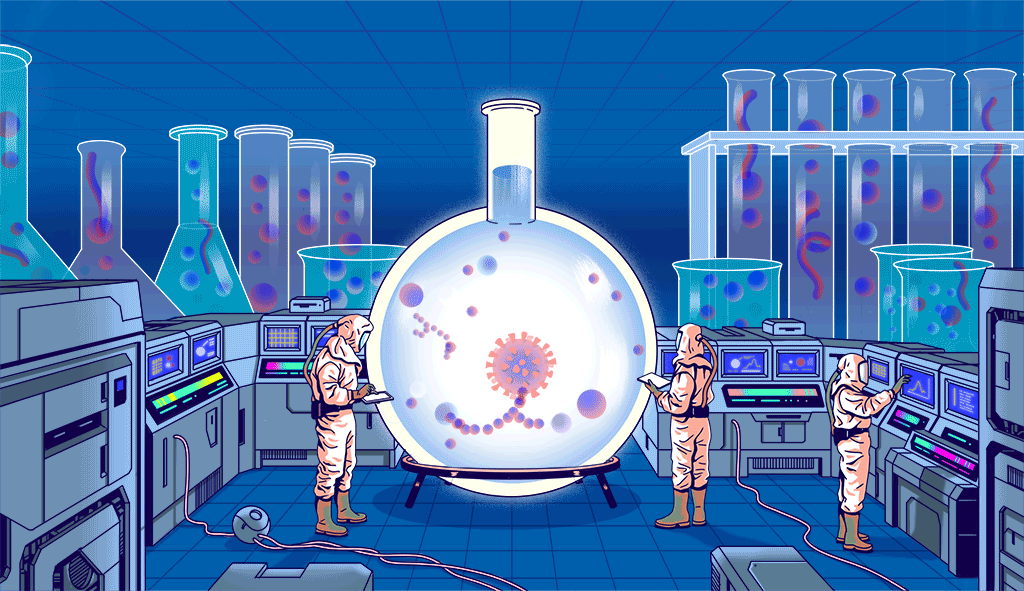Artificial Intelligence, Bioweapons, and the Global Security Landscape

Bioweapons are designed to target specific people and can be used to take them off the battlefield or make them inoperable. There are treaties in place that prohibit the creation of bioweapons, but there are some loopholes that allow for their development. It is important to be aware of the potential for bioweapons and the threat they pose, and countries must be aware of the potential for bad actors to exploit weaknesses in the human domain of warfare.
Bioweapons and the Human Domain of Warfare
The tumultuous era of the Covid-19 pandemic has laid bare the fragility of humanity's defenses in the theater of warfare. This revelation has been a clarion call, underscoring the vulnerabilities in our preparedness against threats that exploit the human domain. With technology serving as both a boon and a bane, the power to exploit these vulnerabilities rests within the hands of malevolent actors, poised to disrupt the global equilibrium.
Amid this intricate backdrop, the realm of synthetic biology has birthed a new category of perilous armaments, aptly referred to as "human domain fires." These bioengineered weapons are poised to reshape the strategic landscape in ways hitherto unimaginable. Precisely calibrated to target specific individuals, these agents of destruction defy traditional warfare norms and possess the potential to alter the very calculus of conflict.
While international treaties ostensibly stand as bulwarks against the proliferation of bioweapons, the landscape is fraught with loopholes. These gaps in governance enable the subversive development of biothreats, necessitating a paradigm shift in naval planners' strategies. With a palpable need to remain at the vanguard of knowledge and readiness, these planners face the imperative of evolving their tactical blueprints to confront a new era of warfare.
The Imperative of Data Protection
A shift in societal expectations has catalyzed the demand for open discourse surrounding data protection. In an era where privacy expectations have been on the decline, the information collected by corporations often remains vulnerable to malevolent forces due to inadequate safeguards. The specter of this data falling into adversarial hands amplifies the urgency of instituting comprehensive protection mechanisms.
Intriguingly, speculation has swirled around the nexus of US bio laboratories in Ukraine, fanning the flames of concerns regarding potential bioweapons development. The Patriot Act's resurgence in 2001 unearthed an unsettling revival of the bioweapons arms race, highlighting the intricate interplay between international politics and the perilous realm of biotechnology.
Unveiling the US-Ukraine Nexus and Bioweapons
Unveiling a labyrinthine involvement, the United States has publicly acknowledged the operation of 46 bio laboratories within Ukraine. This disclosure not only raises profound questions about the extent of their engagement but also casts a long shadow over the specter of bioweaponry. Amid this intricate tapestry, the role of vaccines becomes paramount—representing the quintessential safeguard against the devastation these malevolent agents might unleash.
The clarion voice of Senator Rubio reverberates through the halls of power, as he questions the ramifications of US involvement in Ukraine. This audacious inquiry serves to heighten public consciousness, casting a glaring spotlight on the lurking dangers posed by bioweapons.
Navigating Gain of Function Science and Its Perils
Intricately intertwined with the biosecurity narrative is the ominous field of Gain of Function Science. This discipline, which centers on amplifying the virulence of pathogens, has drawn a curtain of concern across the global scientific community. The employment of over 36,000 life scientists in the pursuit of developing deadly microbes stands as a chilling testament to the gravity of this pursuit. The year 2014 witnessed the inadvertent escape of three such pathogens from labs, a stark reminder of the perilous tightrope this science treads.
Despite a temporary moratorium on Gain of Function Science initiated by President Obama, a notable shift in operations offshore has been orchestrated by Dr. Fauci. Backed by the resources of the US Department of Defense and USaid, this maneuver has propelled this risky enterprise into the realm of international concern.

Comentarios